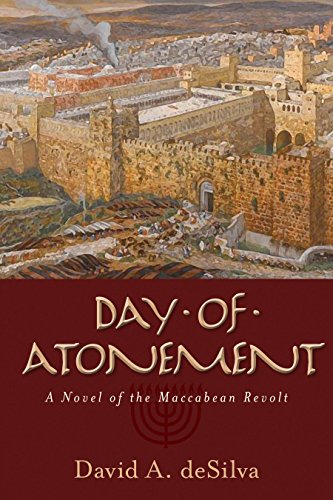Day of Atonement: A Novel of the Maccabean Revolt
The story line of this debut novel revolves around the increased oppression dished out by the regime of Antiochus IV and his puppeteers in Jerusalem against the traditional inhabitants of Judea. This is an “idea” book with historical dramatizations of actual events, rather than a plot-based or character-based book. The ideas center on the conflict between a foreign-imposed “modern” state and traditional local religious practices. There is no discernible plot, yet the author does a good job of showing the internal conflicts of some of the characters as they try to toe the line between modernization and their traditions—and even Antiochus IV has some second thoughts of his own. Whether the author intended it or not, the parallels between his traditionalists of Judea and the Arab terrorists of today are rather striking, the issues being remarkably similar.
Though it seems front-loaded with long expository passages and takes about 60 pages for any sort of story to emerge, I found myself becoming more engaged with the book the further I penetrated it. Towards the end it was hard to put down. And, other than a handful of anachronisms (such as the use of modern words like “kilometer,” and “Transjordan,” when period-oriented terms were available, and the use of Shalom in the temple, when Shakinah was the intended meaning), the historical settings are well done, which should make the book attractive to history buffs – especially those interested in the close of the Hellenistic era and the beginning of the Maccabean era. I would have liked, however, to have seen the book continue to the actual capture of Jerusalem, rather than end at the beginning of the Maccabean revolt.










